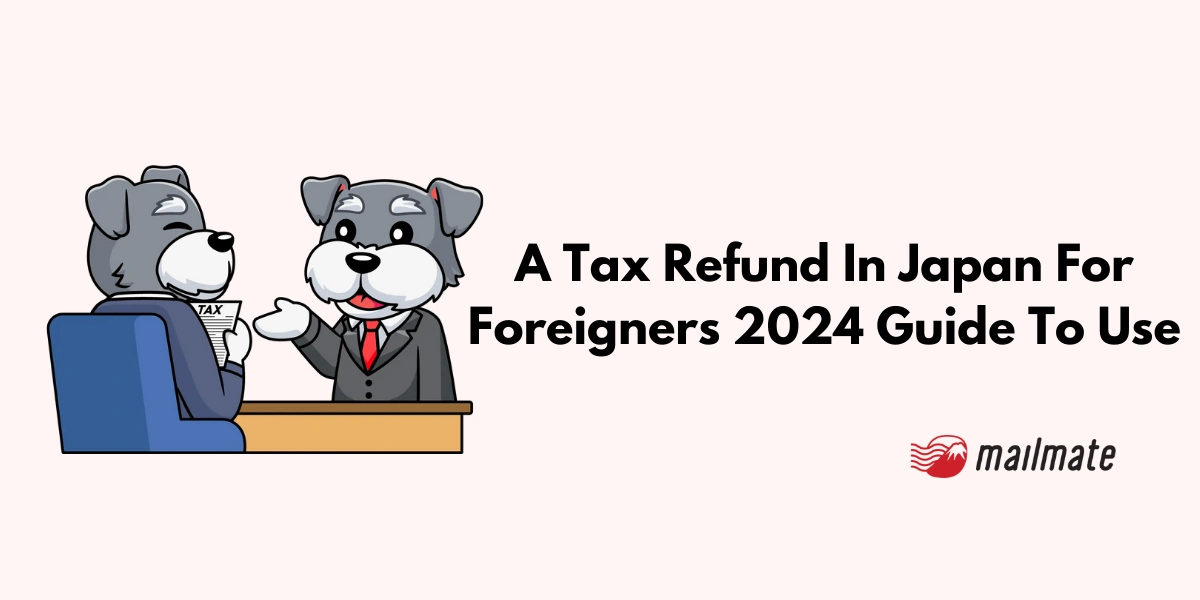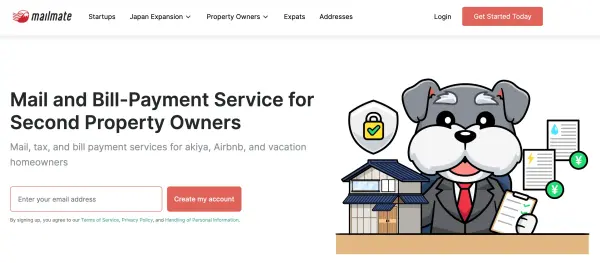A Tax Refund In Japan For Foreigners

All tax systems in any country are daunting. However, navigating the Japanese tax system as a foreigner is another level.
To keep things simple, this article is all about the various tax refunds in Japan for foreigners to receive, whether you are living here or just visiting. This guide outlines the essential details to help you claim your tax refunds efficiently.
Which tax refund in Japan applies to you?
Your situation |
Main refund you can claim |
Tourist/short-term visitor |
Consumption tax (tax-free shopping) |
Working in Japan as a resident |
Income tax refund via final income tax return (確定申告 or 年末調整) |
Leaving Japan permanently after working |
Pension lump-sum withdrawal (脱退一時金) + tax refund |
Property owner in Japan |
Property tax overpayment refund (if applicable) |
Vehicle owner scrapping/exporting a car |
Automobile tax refund |
Resident status and why it matters for tax refunds in Japan
Your eligibility for a tax refund in Japan depends on your tax residency status under Japanese tax law, not simply your visa type.
Japan classifies individuals into the following three categories.
Resident (居住者, kyo-ju sha)
You are a resident if you:
have a domicile (住所, jusho) in Japan, or
have continuously lived in Japan for one year or more.
Tax scope
Residents are generally taxed on:
income earned in Japan, and
income earned outside Japan (subject to specific rules explained below for non-permanent residents).
This status is the most common category for foreign employees and long-term residents in Japan.
Non-permanent resident (非永住者, hi ei-ju sha)
A non-permanent resident is:
a person who qualifies as a resident,
is not a Japanese national, and
has had a domicile or residence in Japan for five years or less within the past ten years.
Tax scope
Non-permanent residents are taxed on:
all income earned in Japan, and
foreign-source income only if it is paid in Japan or remitted to Japan.
This category is very common for foreign professionals who have lived in Japan for only a few years.
Non-resident (非居住者, hikyo-ju sha)
You are a non-resident if you do not meet the definition of a resident.
This usually includes:
short-term visitors,
people who have already left Japan and no longer maintain a domicile in Japan.
Tax scope
Non-residents are taxed only on Japan-source income.
Why your residency status matters for tax refunds
Your residency category determines:
which income must be declared in Japan,
whether you must file a Japanese tax return to claim a refund, and
whether you may need to appoint a tax representative in Japan after leaving the country.
In practice:
Most income tax refunds for foreigners apply to residents or non-permanent residents who overpaid income tax and file a final tax return (確定申告).
Non-residents who are no longer living in Japan generally must appoint a tax representative to receive refunds or file refund-related procedures on their behalf.
Correctly identifying your residency status is the first and most important step before claiming any tax refund in Japan.
Appoint a tax representative in Japan to receive your tax refund
Appointing a tax representative is essential for any tax obligations in Japan, especially for non-residents or those planning to leave Japan.
A tax representative can handle tax returns, pay taxes, receive refunds, process refunds for overpaid income tax, and manage resident tax payments.
They are also essential when a non-resident does not have a Japanese bank account or address, so appointing a trusted individual or service as their tax representative ensures compliance and avoids delays in tax refunds.
Use MailMate as your tax representative.
MailMate is a virtual mailbox service that can act as your tax representative to receive your bills, tax notifications, and government notices on your behalf.

Receive your mail from anywhere.
MailMate is a virtual mailbox service where your physical Japanese mail, including important refund notices and tax office correspondences, is scanned into your online dashboard for viewing anywhere.
That means you can manage your mail and Japanese taxes from abroad.
And if you want to receive any physical mail item yourself, MailMate offers internal forwarding. Just input the international address to which you want your mail items sent, and MailMate will share its tracking number with you.
Securely store your documents.
MailMate complies with Japan's Electronic Bookkeeping Act by making sure:
Tax-related documents such as receipts, invoices, and purchase orders are tamper-proof
Users can sort and retrieve records by transaction date, document type, or keywords to search
It has digital preservation that includes time-stamped verification.
Pay your taxes and bills on time.
With MailMate's real-time notifications, you'll never miss a deal when paying taxes or bills.
Once your mail arrives at MailMate’s facility, it is immediately scanned and uploaded to your secure online dashboard with information about its due date, tax payments, or other time-sensitive obligations.
Types of tax refunds in Japan that you can receive
a. Consumption tax refund
Consumption tax refund targets non-residents on items they bought at tax-free shopping stores, including tourists or anyone in Japan temporarily. Many stores in Japan offer tax-free shopping, where there is a tax-exempt price, or there are tax-exempt items available to purchase.
After making your purchases, you’ll need to head to the designated tax-free counter or the tax-free shopping services, where the staff will confirm that you are a visiting tourist and calculate the taxes owed back to you.
There are a few requirements for quality, such as:
Be on foreign visitors or have a short-term stay visa
Show your passport with a valid entry stamp required
Spend more than 5,500 yen (after taxes) on one bill
The staff at the tax counter will wrap these items up, as you can not consume tax-free goods that are consumables such as food, drink, cosmetics, etc.
b. Income tax return refund
Before submitting your final tax return, many companies will send out a final end-of-year tax adjustment to their employees to calculate any deductible items that should be considered.
Here is a summarized table of what you can deduct.
Types of income tax deductions |
Information |
|---|---|
Basic deduction |
Taxpayers with a total income of 25 million yen or between 160,000-480,000 yen can have a certain amount deducted depending on the amount of income. |
|
Spouse deduction Special spouse deduction |
Have a spouse eligible for deduction under the Income Tax Act. |
Dependent deduction |
Supporting children or relatives aged 16 or over. |
Widow's deduction |
The taxpayer is a widow. |
Single parent deduction |
The taxpayer is a single parent. |
You have paid social insurance premiums for the past year. |
|
Life insurance premium deduction |
Paid the premiums for your life insurance policy. |
Earthquake insurance premium deduction |
You have paid earthquake insurance premiums in the past year. |
Small business mutual aid premium deduction |
Contributions to small business mutual aid and individual pension plans (iDeCo). |
Working student deduction |
The taxpayer is a working student. |
Disability deduction |
The taxpayer, his/her spouse, or dependent is disabled. |
|
Housing loan deduction (from the second year onwards) |
Paying a mortgage to purchase a home (applies from the second year onwards). |
Thus, you are subjected to an income tax refund if you overpaid your income tax.
If you can not receive the refund, such as if you do not have a Japanese bank, you’ll need to appoint a tax representative to accept the refund and forward it to you.
c. Property taxes
Regarding property taxes in Japan, there are so many depending on whether or not you plan on using it as an Airbnb, using a minpaku license, and other factors.
To keep things simple, you are obligated to pay property taxes if you own:
The Land
The Building
Any depreciable assets
You must declare depreciable assets and pay the municipal office's estimated amount based on those asset values. Thus, any property taxes sent by the municipal office must be paid.
So, for any amount you overpaid, you can receive a refund within 5 years. Still, it varies depending on your city or town.
d. Resident tax refund
Foreigners can receive a tax refund in Japan on their resident taxes if they overpaid.
The statute of limitations for refunds is five years from January 1 of the year following the year the income was earned. So if 5 years have passed, you can no longer receive the refund.
To file for an individual inhibit tax refund, search for 過誤納金還付請求書 (Overpayment Refund Application Form) from your local city, town, or village and submit it by mail.
e. Automobile tax refund
In general, the automobile tax is paid for one year, and the system will return that paid tax to you as a refund, depending on when the car is scrapped.
To scrap your car in Japan, you’ll go through a deregistration process, and there are two types:
Temporary: When the vehicle is not being used temporarily. The refund is applied during the unused period when the car is temporarily deregistered.
Permanent: when the vehicle is scrapped, exported, or otherwise permanently removed from use in Japan. The refund is applied to the remaining unused tax for the rest of the year.
f. Pension refunds
Normally, people do not get pension tax refunds in Japan.
However, as a foreigner, you can get a pension refund if you plan on leaving Japan permanently.
There are a couple of requirements first:
Be a non-Japanese citizen
Contributed to the National Pension or Employee Pension for at least 6 months
Have no registered address in Japan at the time of application
Never have received any Japanese pension benefits, including disability pension
You’ll apply for a lump-sum pension refund (脱退一時金, dattai ichijikin). A 20% tax rate will be deducted from the lump-sum refund. You can still recover this amount by following the tax refund procedure and appointing a tax representative in Japan to file the refund on your behalf.
Frequently asked questions
Can foreign visitors get tax free shopping in Japan?
Yes. Foreign visitors staying in Japan temporarily for less than six months can use tax free shopping at approved stores. You must show your passport and purchase eligible tax exempt items to receive a tax exemption. This system is intended for foreign travelers and does not apply to Japanese citizens living in Japan.
Where do I go for a tax refund counter in Japan?
Most major retailers and department stores have a designated tax refund counter inside the store. Some smaller shops process tax free purchases directly at the cashier. You must bring your purchased items, your receipt and your passport to the tax refund counter.
What is the tax refund procedure for tax free shopping in Japan?
The tax refund procedure is completed at the store. You buy items at a tax free store, present your passport at the register or tax refund counter, and the store applies the tax exemption immediately. In most cases, no later refund application is required.
In closing
Japan provides several tax refund options tailored to residents and non-residents. From taking advantage of Japan's tax exemption system for tax-free shopping to receiving a pension refund, you can ensure you won’t leave any money on the table. With the right guidance and services, claiming any tax refund in Japan for foreigners can be a smooth and straightforward process.
Spending too long figuring out your Japanese mail?
Virtual mail + translation services start at 3800 per month. 30-day money-back guarantee.

